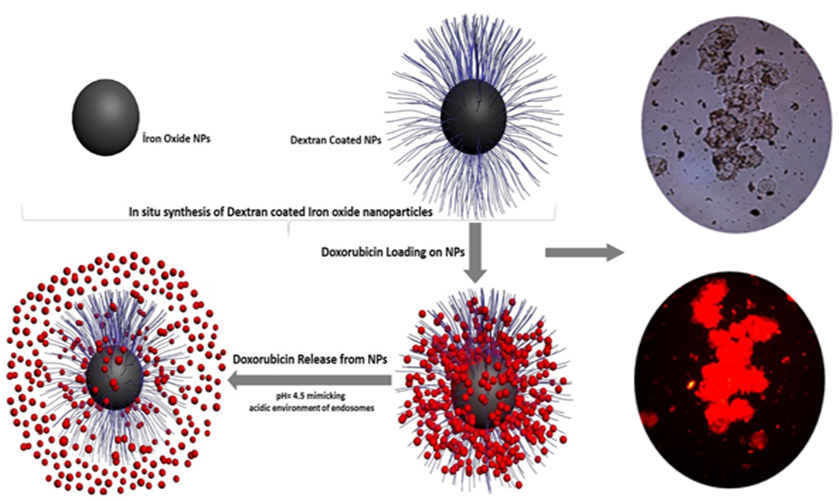Doxorubicin-loaded magnetic nanoparticles downregulate expression of anti-apoptotic genes in resistant breast cancer cells

Keywords:
Doxorubicin, Anti-cancer, Breast cancer, Drug resistance, Magnetic nanoparticles, Iron nanoparticlesAbstract
In this research, surface of magnetic nanoparticles (IO-NPs) were coated with dextran polymer (Dex-IO-NPs) in which dextran provides both cavities for drug loading and drug stability. Dex-IO-NPs were synthesized by co-precipitation of iron salts with ammonium hydroxide in the presence of dextran solution. Dex-IO-NPs were then characterized by FTIR, TGA, TEM, SEM and VSM analyses. Doxorubicin was loaded on Dex-IO-NPs (Dox-Dex-IO-NPs) and applied to breast cancer (MCF-7) and Doxorubicin resistant (MCF-7/1000nM-Dox) breast cancer cell lines. Dex-IO-NPs were highly internalized and localized within the cells. Importantly, the half-maximal inhibitory concentrations (IC50) of Dox-Dex-IO-NPs were 0.8 µM and 25 µM in MCF-7 and MCF-7/1000nMDox cells respectively, which were 2 and 7 times more effective in cell death with respect to free Doxorubicin. The release of anti-cancer agent from Dox-Dex-IO-NPs occurs with natural degradation of Dextran, and allows nuclear uptake of Doxorubicin, which results an increase in the ef?cacy of Doxorubicin. The anti-apoptotic genes were downregulated in Dox-Dex-IO-NPs treated cells as compared to free Doxorubicin treated cells, revealing the higher cytotoxicity and apoptotic potential of Dox-Dex-IO-NPs. These results may imply that Dex-IO-NPs particles can have a potential to be an efficient tool for drug delivery in breast cancer therapy.

